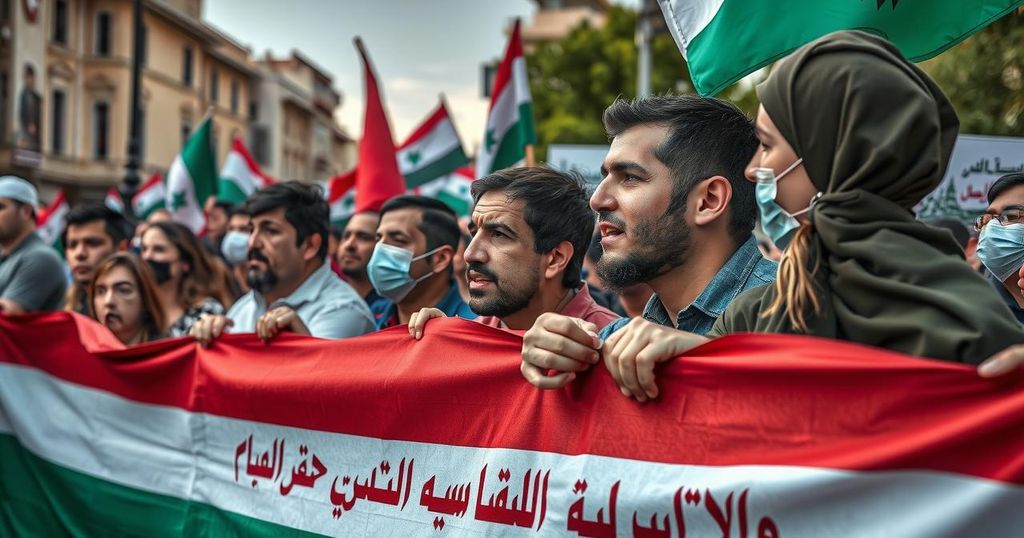In Tripoli, Lebanon, hundreds protested for the release of Islamist detainees jailed during the Syrian civil war. The demonstrators, including those who previously fought against Assad, are urging the government to grant amnesty, highlighting a history of legal issues regarding these prisoners. Prime Minister Najib Mikati indicated a need for parliamentary action to resolve this matter more definitively.
On a recent Sunday, hundreds demonstrated in Tripoli, Lebanon, calling for the release of individuals imprisoned during the Syrian civil war. The detainees primarily consist of Lebanese nationals who traveled to Syria to support rebel forces opposing President Bashar al-Assad’s regime that began in 2011. The protest took place in Nour Square, highlighting the desire of the rally attendees to exert pressure on Lebanese authorities to grant freedom to those incarcerated under accusations linked to the Syrian conflict.
Protester Ahmad al-Shimali articulated the sentiments of many at the rally, asserting, “We want to increase pressure on the Lebanese authorities to release all Islamist detainees.” He emphasized that those imprisoned were involved in the Syrian revolution, stating, “Most went to Syria to fight, supported our people in Syria, or were found to have communicated with jihadists or fighters. But today the Assad regime has fallen.”
For years, human rights organizations have advocated for just treatment and trials for those detained on suspicion of Islamist extremism in Lebanon. Many of these individuals have languished in jail without trial. In December, Prime Minister Najib Mikati addressed the families of these detainees, expressing that the matter should be resolved conclusively, although he noted that parliamentary approval is required for a general amnesty.
The history of Lebanon’s Tripoli area is marked by conflict, particularly influenced by neighborhood tensions between Sunni Muslims and the Alawite sect, which is aligned with Assad. As clashes erupted in the early stages of the Syrian war, these tensions reflect the complex socio-political landscape of the region, where memories of such struggles continue to impact current issues regarding justice and accountability.
The ongoing situation surrounding prisoners detained during the Syrian civil war highlights the intricate relationship between Lebanon and Syria, particularly involving Islamist factions. The Syrian civil war, which commenced in 2011, saw many Lebanese individuals engaging with jihadist groups in an attempt to combat Assad’s regime. Amidst this backdrop, the treatment and trials of these detainees have emerged as significant human rights concerns, with calls for accountability and legal recourse from both families and advocacy groups. The societal divisions within Lebanon, particularly in Tripoli where sectarian tensions are prevalent, further complicate the matter, as the legacy of past conflicts persists.
The rally in Tripoli underscores the urgent calls for justice and the release of Islamist detainees associated with the Syrian civil war. Protesters are pressing for a resolution to this longstanding issue, seeking both governmental action and public support for those who have faced imprisonment without trial. As the political dynamics in the region evolve, the fate of these detainees remains a pivotal issue reflecting broader struggles for human rights and justice in Lebanon.
Original Source: www.al-monitor.com






